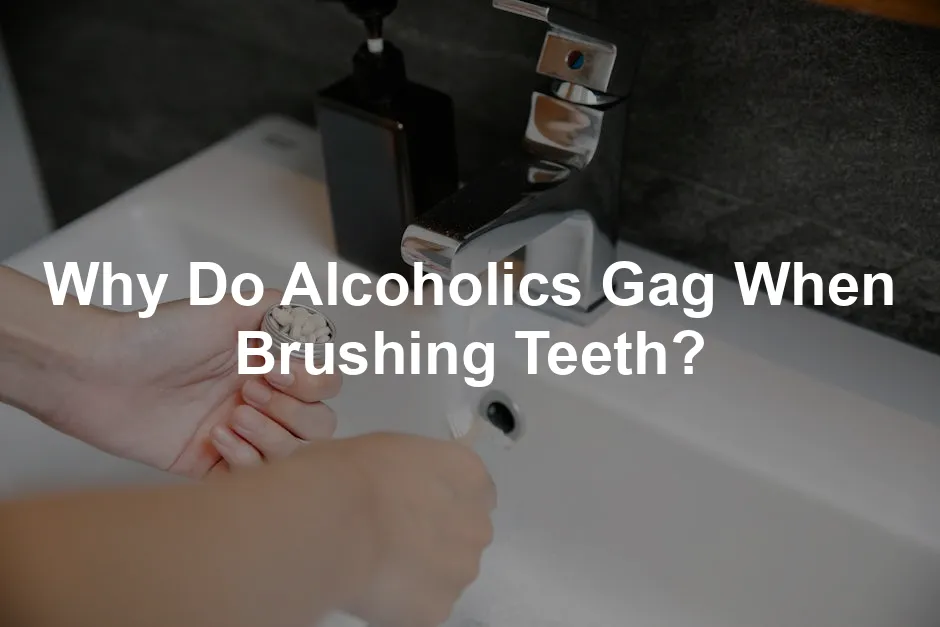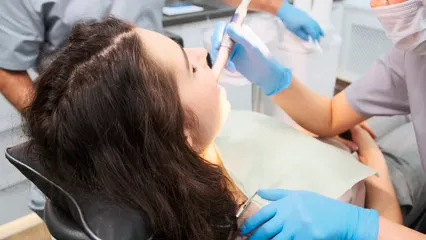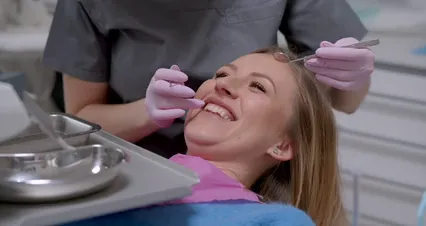
Why Do Alcoholics Gag When Brushing Teeth?
Introduction
Gagging while brushing teeth is a common issue. This problem is particularly prevalent among alcoholics. Understanding why this happens can help improve their dental care and overall health. In this article, we will explore the reasons behind gagging and its implications for alcoholics.
To combat those pesky gag reflexes, consider investing in a Kids Electric Toothbrush with Timer. Not only does it help kids master the art of brushing, but it can also be a delightful distraction for adults! Who says oral hygiene can’t be fun?
Summary and Overview
Alcohol consumption impacts oral health in multiple ways. Frequent drinking can lead to a dry mouth, which complicates oral hygiene. When the mouth is dry, the gag reflex can become more sensitive. This heightened sensitivity makes brushing teeth uncomfortable or even unbearable for some.
Additionally, neglecting dental care can amplify health risks. Alcoholics often experience a lack of motivation to maintain proper hygiene, further exacerbating their oral issues. Key factors that contribute to the gag reflex in alcoholics include dehydration, inflammation, and psychological factors linked to alcohol use.

If you’re looking for a way to freshen your breath while tackling that dry mouth, look no further than Listerine Antiseptic Mouthwash. It’s like a mini spa for your mouth, helping you feel refreshed and ready to tackle the day!
The Gag Reflex: Understanding the Basics
What is the Gag Reflex?
The gag reflex is a natural protective mechanism. It triggers when something touches the back of your throat. This reflex prevents choking and helps you swallow safely. Neurologically, it is controlled by the brain stem. When the soft palate or back of the tongue is stimulated, the reflex activates. Its primary role is to safeguard against choking hazards, especially when eating or drinking.
Understanding this reflex is crucial for those who struggle with it. Recognizing that it serves a protective function can help individuals manage their reactions while brushing their teeth.

For a brushing experience that’s both gentle and effective, consider the Philips Sonicare ProtectiveClean 6100. With smart pressure sensors and multiple modes, it’s like having a dental hygienist in your bathroom!
Factors Influencing Gag Reflex Sensitivity
Several factors can heighten the gag reflex, making tooth brushing a challenge for some individuals. Psychological aspects play a significant role. Anxiety or past negative experiences can lead to a learned behavior where the body reacts strongly to certain stimuli. If someone has previously gagged while brushing, they might become anxious about it happening again, creating a cycle of fear and gagging.
Physiological factors also contribute. The sensitivity of the palate and throat can vary from person to person. Some individuals have a naturally more sensitive gag reflex due to anatomical differences. Moreover, conditions like inflammation in the throat or mouth can exacerbate sensitivity, making even gentle brushing feel uncomfortable.
Understanding these factors is crucial, especially for alcoholics who may have altered sensitivity due to their drinking habits. Recognizing both psychological and physiological influences can help individuals manage their gag reflex more effectively during oral hygiene routines.

Alcohol’s Impact on Oral Health
How Alcohol Affects the Mouth
Alcohol consumption significantly impacts oral health by reducing saliva production. Saliva is vital for maintaining oral hygiene; it washes away food particles and neutralizes acids produced by bacteria. When saliva production decreases, the mouth becomes dry, leading to an environment where bacteria thrive. This increase in bacteria heightens the risk of cavities and gum disease.
Dry mouth can also cause discomfort, making it harder to perform everyday tasks like brushing and eating. As a result, individuals may neglect their oral hygiene, leading to more severe dental issues over time. Alcohol’s acidic nature further compounds these problems by eroding tooth enamel, making teeth more susceptible to decay.

To help combat the effects of dry mouth, consider using Biotene Dry Mouth Oral Rinse. It’s designed to provide moisture and comfort, making it a must-have for anyone dealing with dry mouth.
Relationship Between Alcohol and Gagging
Alcohol-induced changes in the oral environment can worsen gagging during brushing. The dry mouth that often accompanies heavy drinking can make the gag reflex more pronounced. This increased sensitivity may make it challenging for alcoholics to maintain proper oral hygiene.
Additionally, alcohol consumption is frequently linked to neglecting dental care. Many alcoholics may prioritize drinking over regular brushing and dental visits, leading to a vicious cycle of poor oral health. As oral hygiene deteriorates, the likelihood of gagging during brushing increases, creating further challenges in managing their dental health. Understanding these connections can help in developing strategies to improve oral hygiene practices among alcoholics.

Implications for Dental Hygiene in Alcoholics
Challenges of Maintaining Oral Hygiene
Maintaining oral hygiene can be tough for alcoholics. Alcohol tends to dry out the mouth, creating an environment where bacteria thrive. This dryness makes brushing uncomfortable. Many alcoholics also experience a lack of motivation for self-care. Neglecting dental hygiene can lead to serious issues like cavities and gum disease.
Psychological factors complicate matters further. Alcohol use can contribute to anxiety and depression. These feelings often lead to neglecting personal health, including oral care. The combination of physical and psychological challenges makes it hard for alcoholics to maintain effective dental hygiene.

To help tackle those dental challenges, consider a Waterpik Aquarius Water Flosser. This handy device can help remove plaque and promote healthier gums, making it easier to keep your mouth clean and fresh!
Strategies for Alcoholics to Improve Oral Hygiene
Improving oral hygiene is essential for alcoholics. Here are some practical tips to manage gag reflex while brushing:
- Use a Smaller Toothbrush: A smaller head may be less triggering.
- Try Electric Toothbrushes: They can provide a gentle, effective clean.
- Breathe Through Your Nose: This can help reduce the gag reflex.
- Distraction Techniques: Listen to music or watch TV while brushing.
- Take It Slow: Gradually work towards brushing the back teeth.
Regular dental visits are crucial. Dentists can provide professional cleanings and advice tailored to individual needs. Prioritizing dental health can significantly enhance overall well-being. Alcoholics should not hesitate to seek help for their dental hygiene challenges.

The Role of Healthcare Providers
Importance of Addressing Oral Health in Alcohol Treatment
Integrating dental health into addiction treatment is essential. Many alcoholics face significant oral health challenges. These issues often go unnoticed in traditional treatment programs. By addressing dental care alongside addiction recovery, we can enhance overall health outcomes.
Regular dental check-ups help prevent complications. Poor oral health can lead to severe issues, including gum disease and tooth loss. Alcoholics often neglect their dental hygiene, leading to further health risks. A comprehensive treatment plan should include dental care to improve quality of life.
Healthcare providers can guide patients on maintaining oral hygiene. Offering resources and referrals to dental professionals can significantly impact recovery. This integrated approach fosters a healthier lifestyle and promotes long-term sobriety.

Conclusion
In summary, the gag reflex in alcoholics can complicate dental hygiene practices. It is vital to understand the connections between alcohol consumption and oral health. Regular dental check-ups can help manage these challenges effectively.
Maintaining good oral hygiene is crucial for overall well-being. If you or someone you know struggles with alcohol and oral health issues, seek professional help. Taking action can lead to better health outcomes and a brighter future.

FAQs
Why do some alcoholics have a stronger gag reflex than others?
Individual gag reflex sensitivity varies widely among alcoholics. This variability can be due to several factors. Genetics plays a crucial role in how sensitive one’s gag reflex is. Some people might naturally have a more pronounced gag reflex, making brushing teeth feel uncomfortable. Additionally, psychological factors can heighten sensitivity. Past experiences or anxiety linked to gagging can create a learned response. Alcoholics may also have physiological changes from their drinking habits, leading to increased gag reflex sensitivity. Understanding these individual differences is key in addressing oral hygiene challenges.
Can alcohol consumption lead to permanent changes in the gag reflex?
Alcohol consumption can impact the gag reflex in various ways. Long-term drinking may lead to alterations in oral health. For instance, chronic dry mouth can result from excessive alcohol intake. This dry environment can heighten the gag reflex sensitivity. Moreover, prolonged alcohol use often leads to inflammation in the mouth and throat. These changes can potentially affect the gag reflex long-term. It’s crucial for individuals to monitor their oral health and seek dental care when needed to mitigate these effects.
What steps can be taken to reduce gag reflex while brushing teeth?
Managing a sensitive gag reflex while brushing can make a big difference. Here are some practical tips: Choose a Soft Toothbrush: A softer brush can be gentler on your throat. Opt for Smaller Toothbrush Heads: A smaller brush head can help reduce triggering the gag reflex. Breathe Through Your Nose: Focusing on breathing through your nose can help calm the reflex. Distract Yourself: Listen to music or watch a show while brushing to take your mind off it. Brush Gradually: Start by brushing the front teeth and slowly work towards the back. Implementing these strategies can make tooth brushing a more manageable task for those with a sensitive gag reflex.
How does dry mouth from alcohol affect oral health?
Dry mouth is a common issue for those who consume alcohol. It can lead to a variety of oral health problems. Saliva is essential for neutralizing acids and washing away food particles. When alcohol causes dry mouth, bacteria can flourish, increasing the risk of cavities. Furthermore, dry mouth can result in bad breath and discomfort. It may also make brushing and flossing less effective. Staying hydrated and using mouth rinses can help manage dry mouth and protect oral health.
Is it common for alcoholics to neglect their dental health?
Neglecting dental health is quite common among alcoholics. Studies show that alcohol dependence can lead to poor hygiene habits. Many alcoholics prioritize drinking over personal care, including dental health. Statistics reveal that alcoholics often have higher plaque levels and more dental issues. Regular access to dental care can be limited, further compounding these problems. It’s essential for those struggling with alcohol to seek help and prioritize their oral health.
What are the signs that an alcoholic may need to seek dental care?
There are specific symptoms to watch for that indicate the need for dental care. Common signs include persistent bad breath, swollen or bleeding gums, and tooth sensitivity. If someone notices cavities or tooth decay, it’s crucial to seek help. Additionally, difficulty in chewing or swallowing could signal underlying issues. Regular dental check-ups can help catch problems early, leading to better outcomes for oral health.
How can healthcare providers assist alcoholics with dental issues?
Healthcare providers play a vital role in addressing dental issues in alcoholics. They can offer integrated care that focuses on both addiction treatment and oral health. By educating patients on the importance of dental hygiene, providers can help improve overall well-being. Providers can also refer patients to dental professionals for regular check-ups and cleanings. This collaborative approach ensures that both addiction and oral health are prioritized, leading to better recovery outcomes.
Please let us know what you think about our content by leaving a comment down below!
Thank you for reading till here 🙂
All images from Pexels




